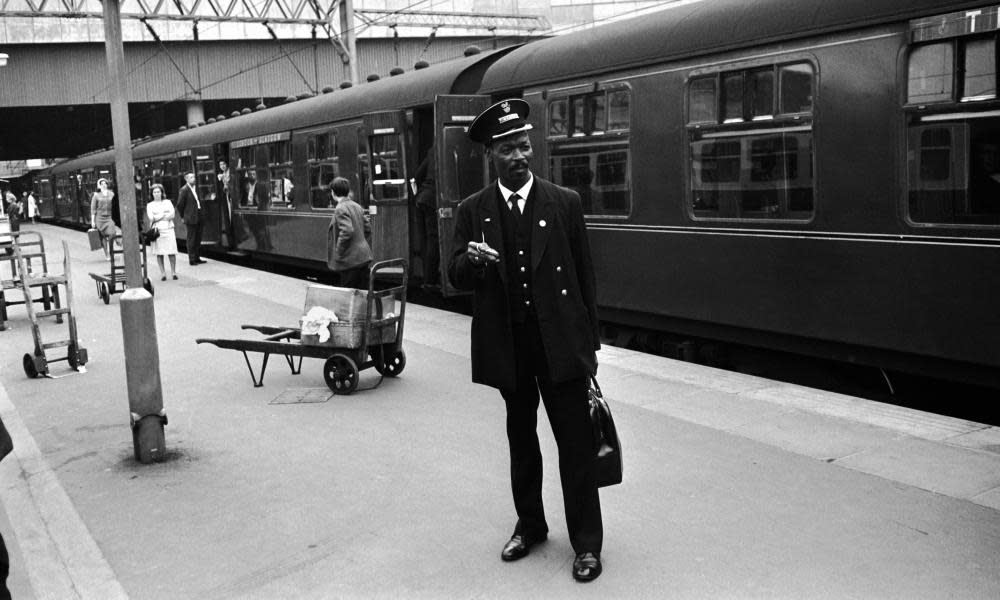RMT salutes worker who overturned racist recruitment at Euston station

Union leaders have praised the “brave actions” of a railway worker who overturned a racist recruitment policy in the 1960s.
The Rail, Maritime and Transport union (RMT) marked the 54th anniversary of the breaking of the colour bar at London’s Euston station by pledging to continue its campaign against racism.
On 15 August 1966, the colour bar at Euston station was defeated when Asquith Xavier was allowed to start work after initially being refused a job.
The RMT’s assistant general secretary, Mick Lynch, said: “Today we remember the brave actions of Asquith Xavier and those NUR officials who supported him in a campaign which eventually defeated the colour bar at Euston station. We owe so much to those who challenged racism on the railway in an era when it was all pervasive.
“The union remains eternally vigilant in the fight against racism, and in this modern era of Black Lives Matter it is important we remember Asquith Xavier and those trade unionists who blazed a trail for us over five decades ago.”
Xavier, who died in 1980, was part of the Windrush generation, moving to England from Dominica after the second world war.
He worked for British Railways in 1956 as a porter, working his way up to rail guard at Marylebone station in London. After the closure of the Marylebone main line as part of the Beeching rail cuts, guards were no longer required and were being transferred to stations such as Euston. Xavier, an experienced guard, received a letter from management telling him that he had been rejected for a job at Euston.
Black workers had been barred from taking jobs as guards and porters at Euston station while Irish workers at Paddington were restricted to labouring roles in the goods yard and similar restrictions applied at other stations.
The Euston colour bar was first made public in 1966 by James Prendergast, an NUR – now the RMT – official at Marylebone.
But as far back as June 1961, the Communist party newspaper, the Daily Worker, reported that the South Paddington Labour party had requested that British Railway investigate immediately the ban on employment of workers from BAME backgrounds at Paddington Station.
Sid Greene, the general secretary of the NUR, contacted the British Rail Board about racist policies being practised in their name, which he said had been a longstanding problem.
A Guardian article at the time reported that Leslie Leppington, the British Railways divisional manager, announced after final negotiations with local leaders of the NUR that no grade would in future be closed to workers from BAME background in any position in the London division. He was prepared to appoint a properly qualified BAME stationmaster, and volunteered to resign if discrimination could ever again be proved.
The abandonment of the racist policy, which persisted for 12 years at Euston, was reinforced by the British Railways Board.
Barbara Castle, the minister of transport, said in a written letter that the board had “re-emphasised to all concerned throughout the undertaking the need for vigilance to prevent discrimination, and for using every endeavour to resolve … difficulties when they do arise”.
A plaque will be unveiled next month at the train station in Chatham, Kent, where Xavier lived.


